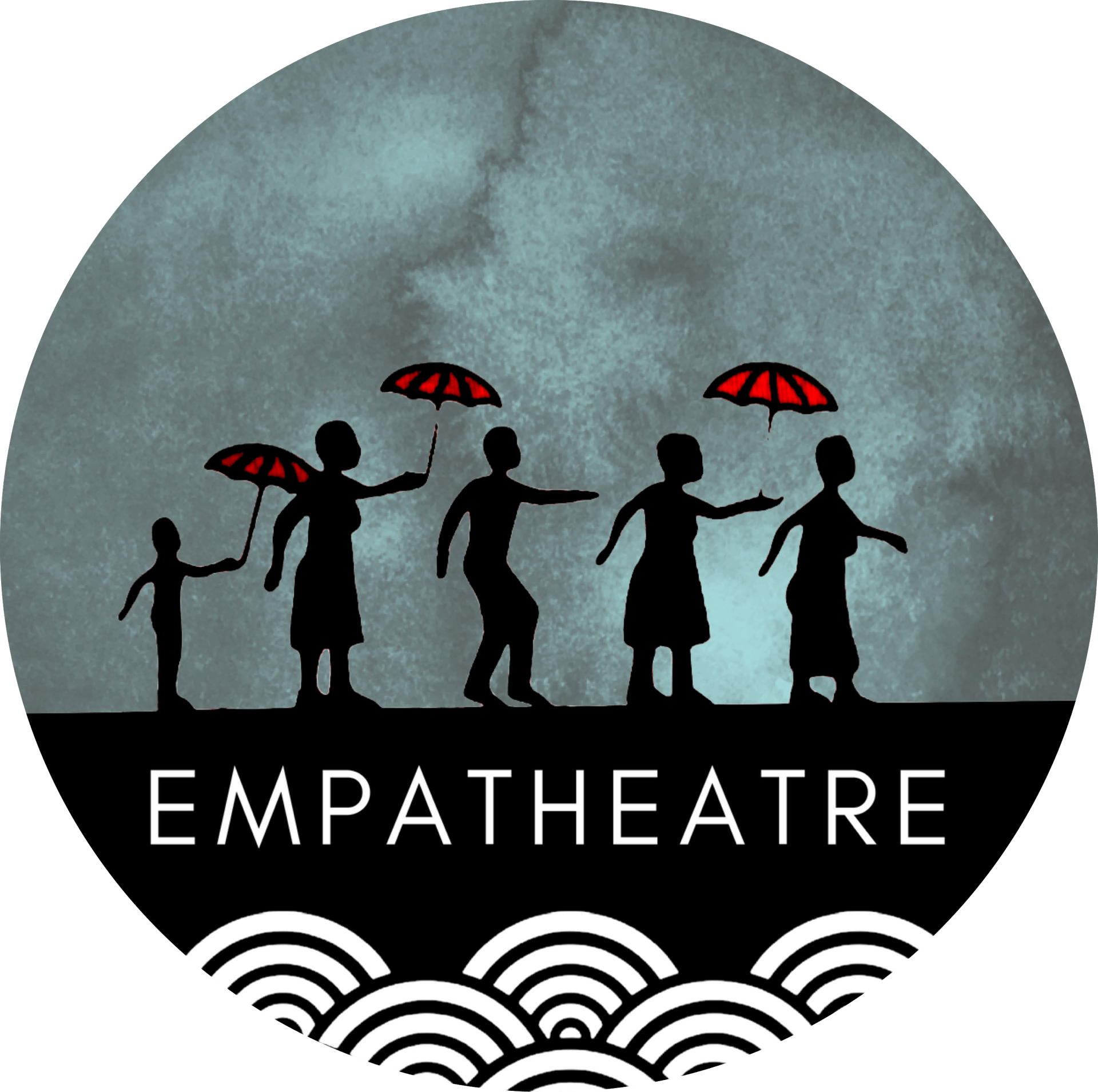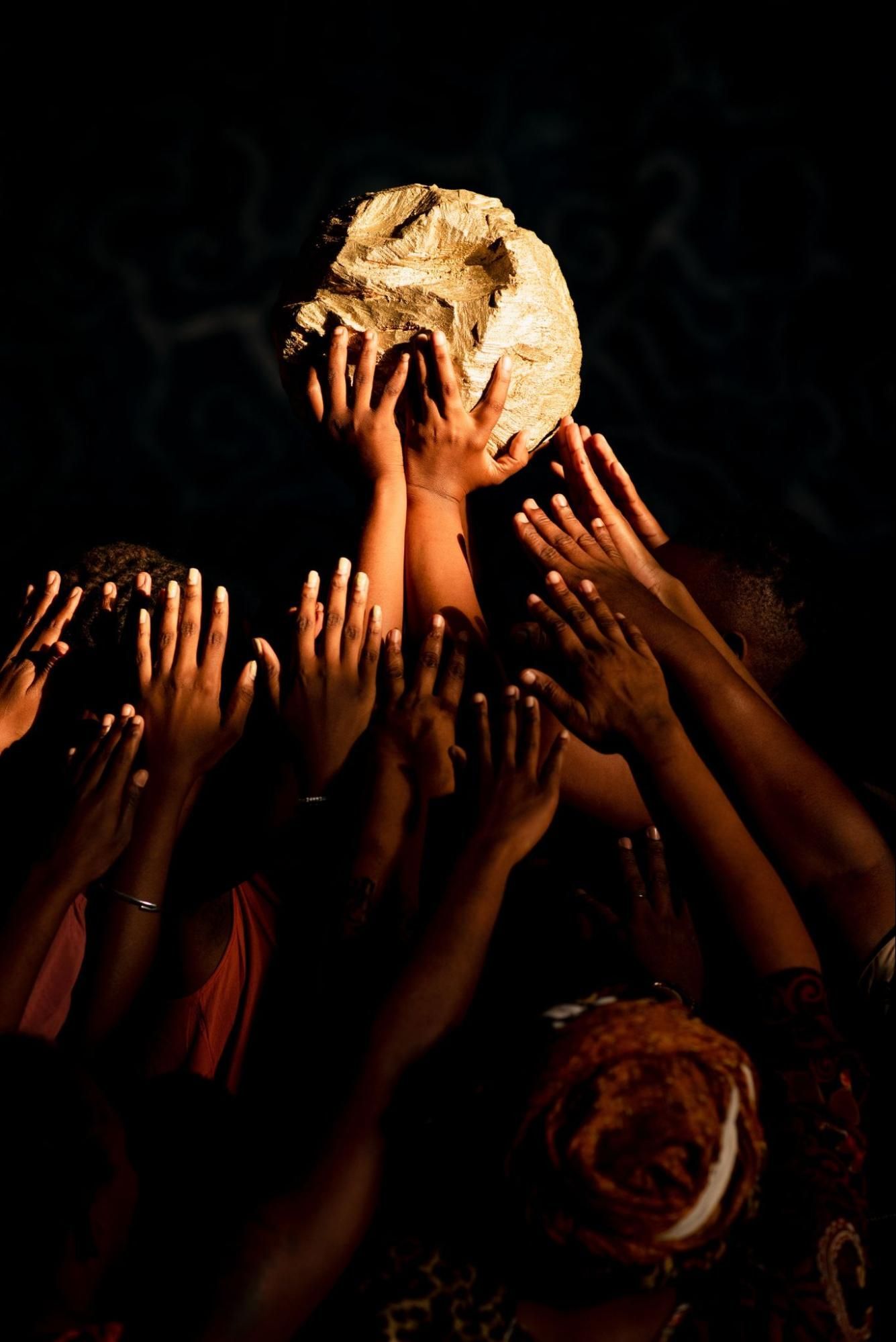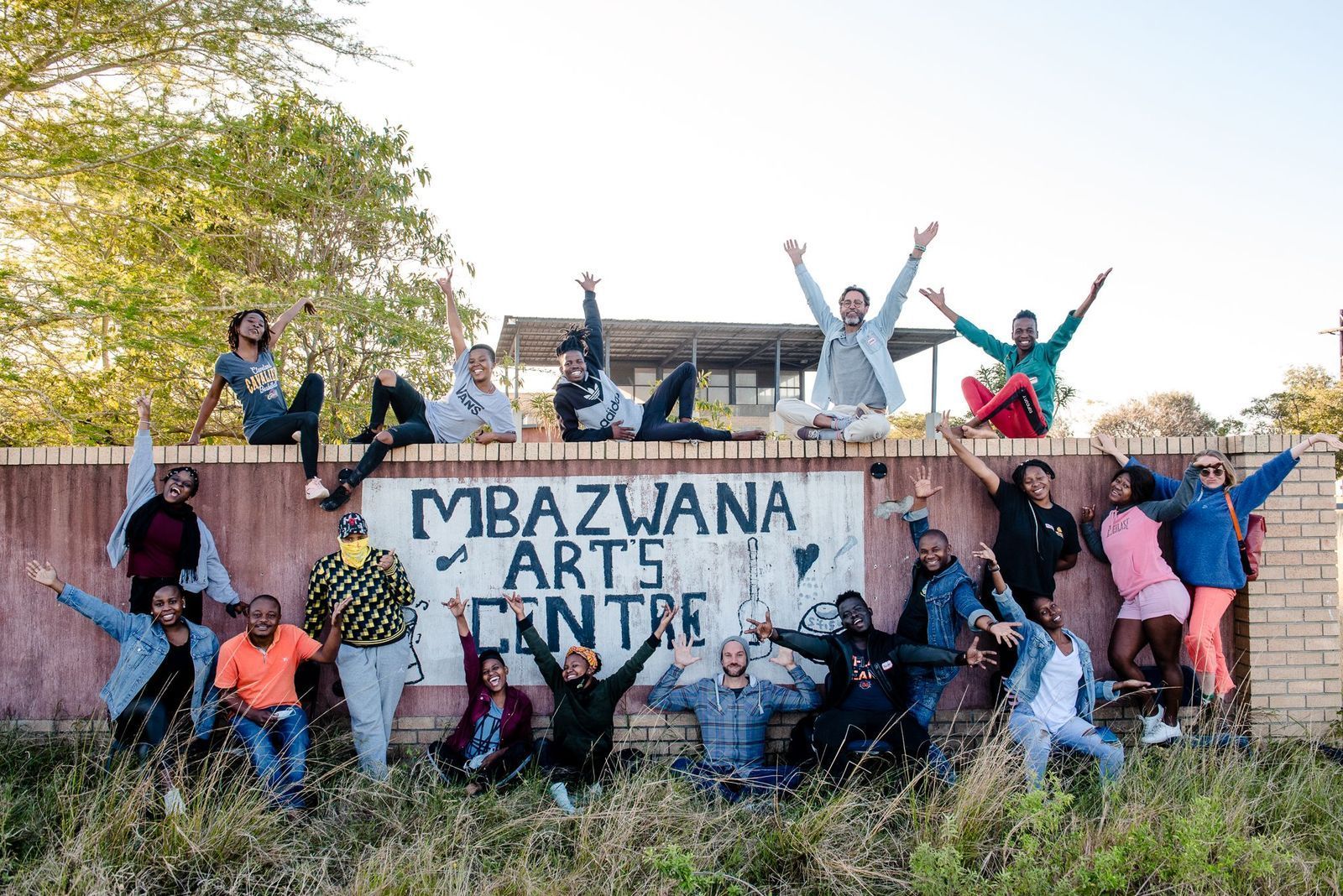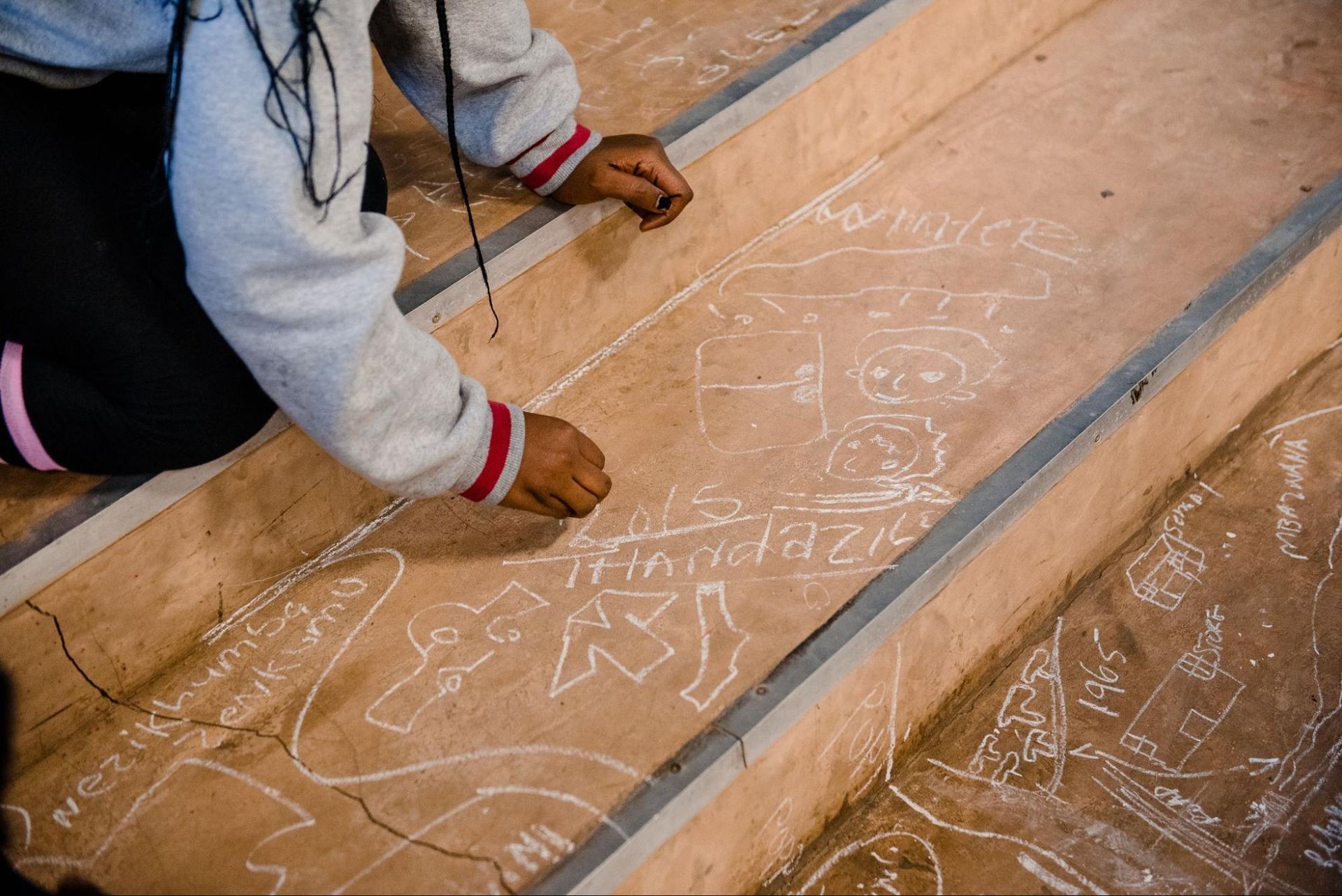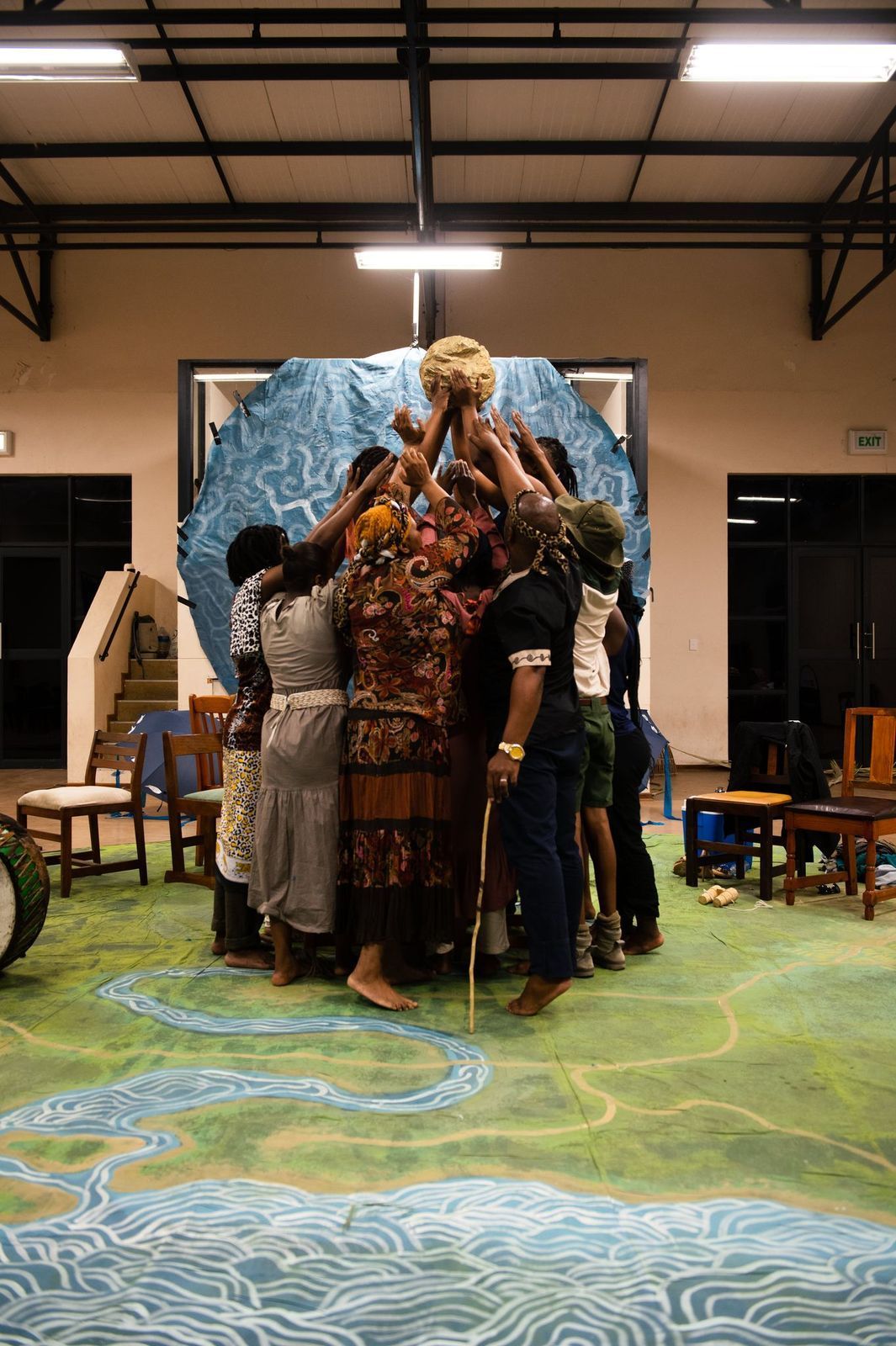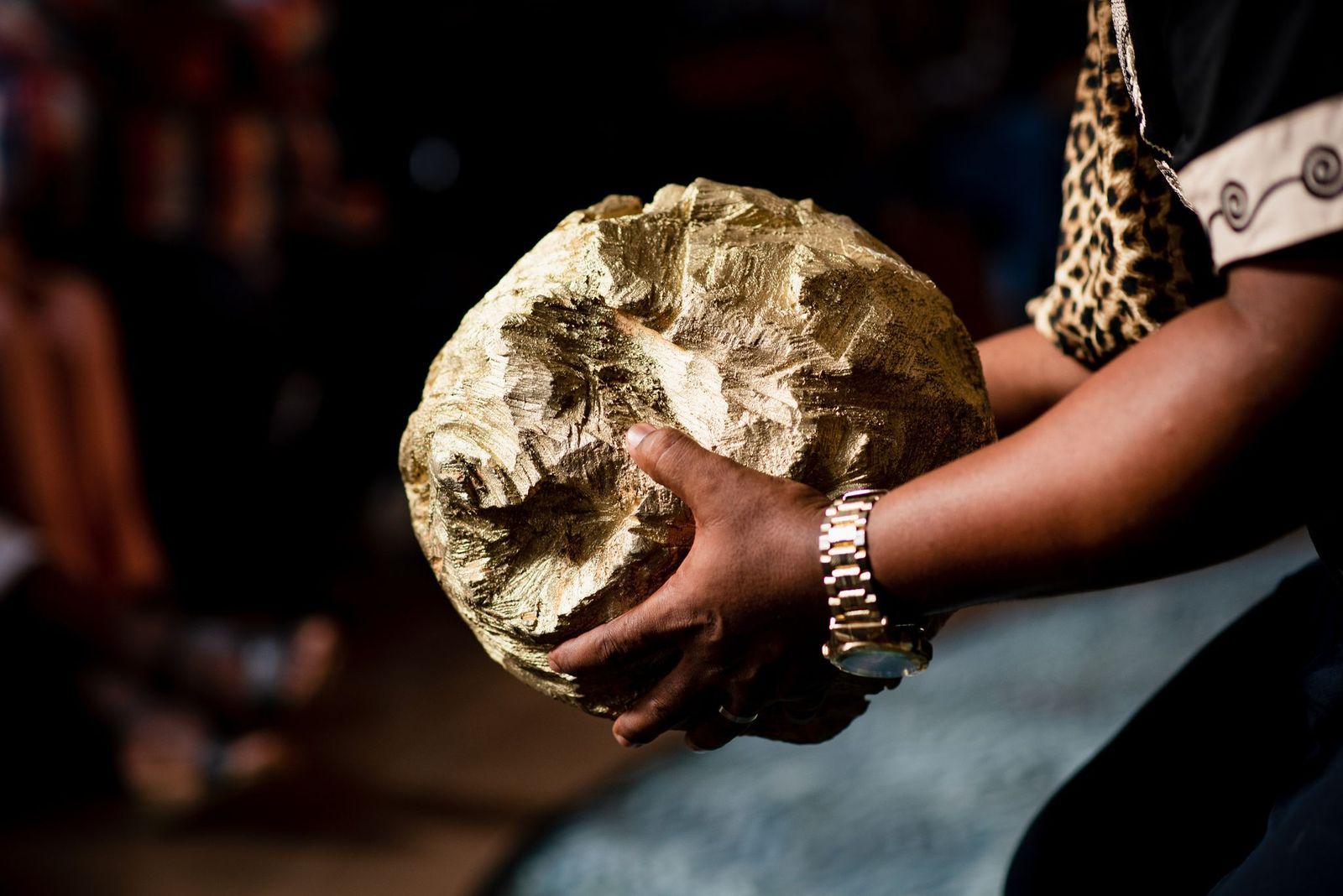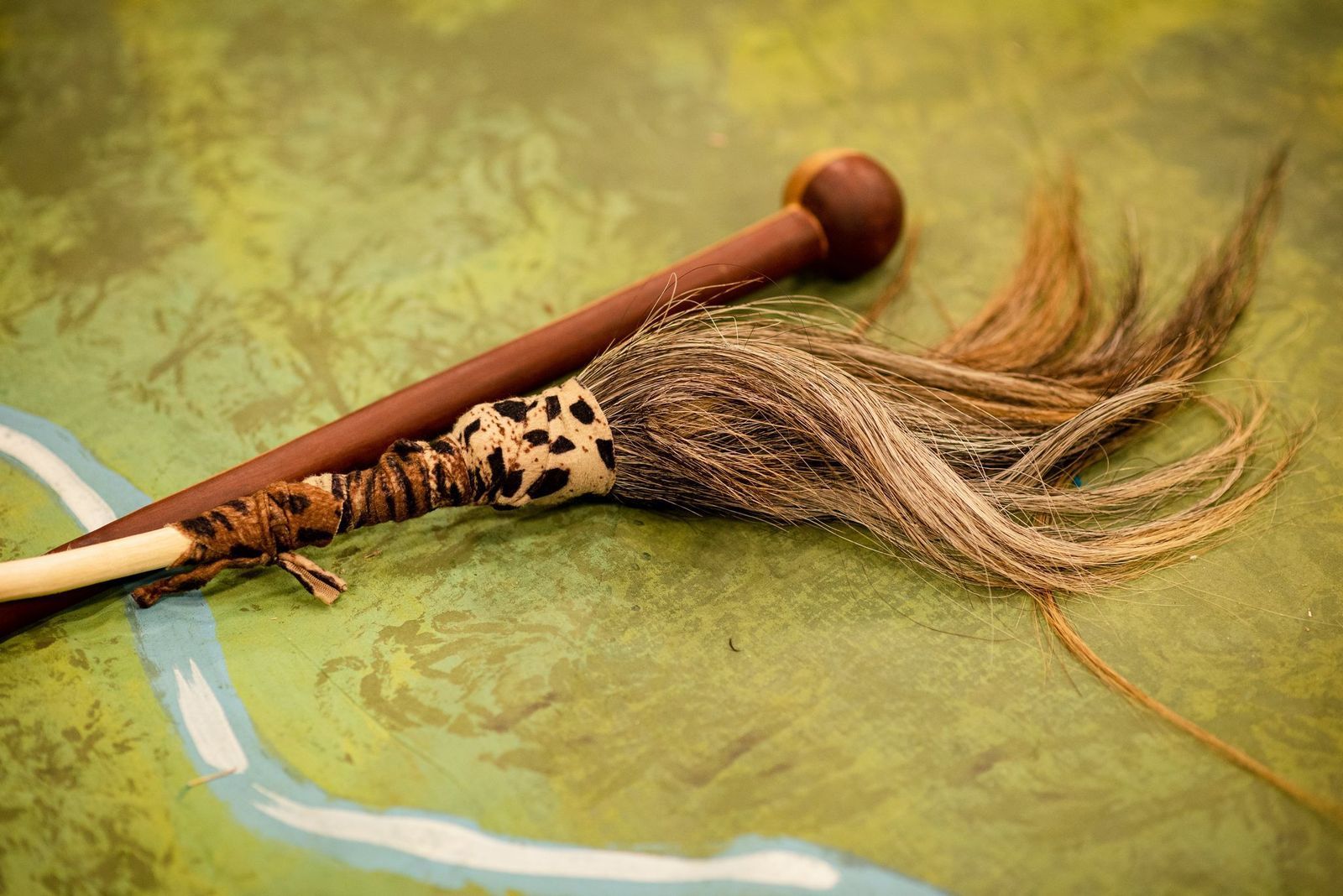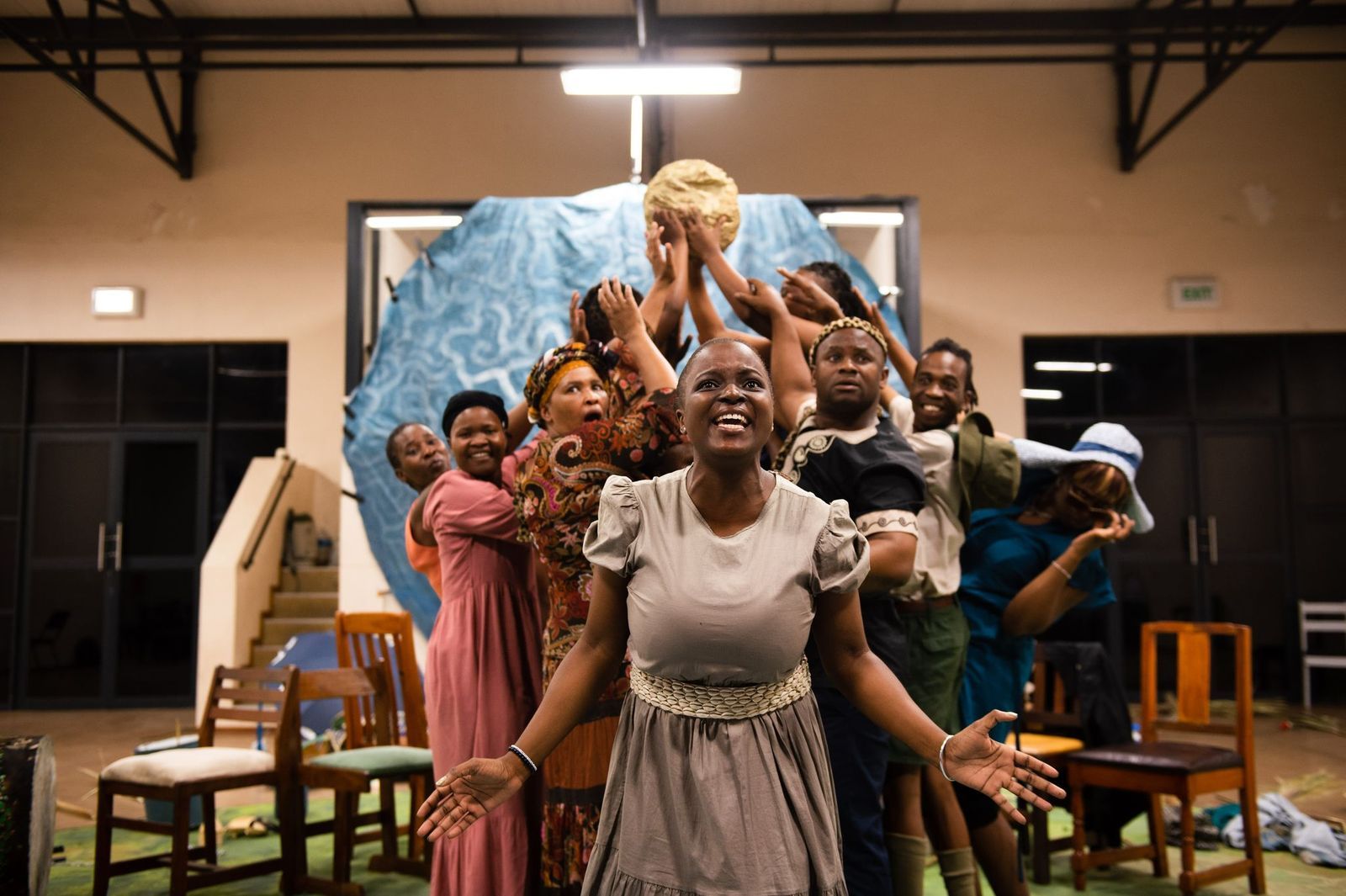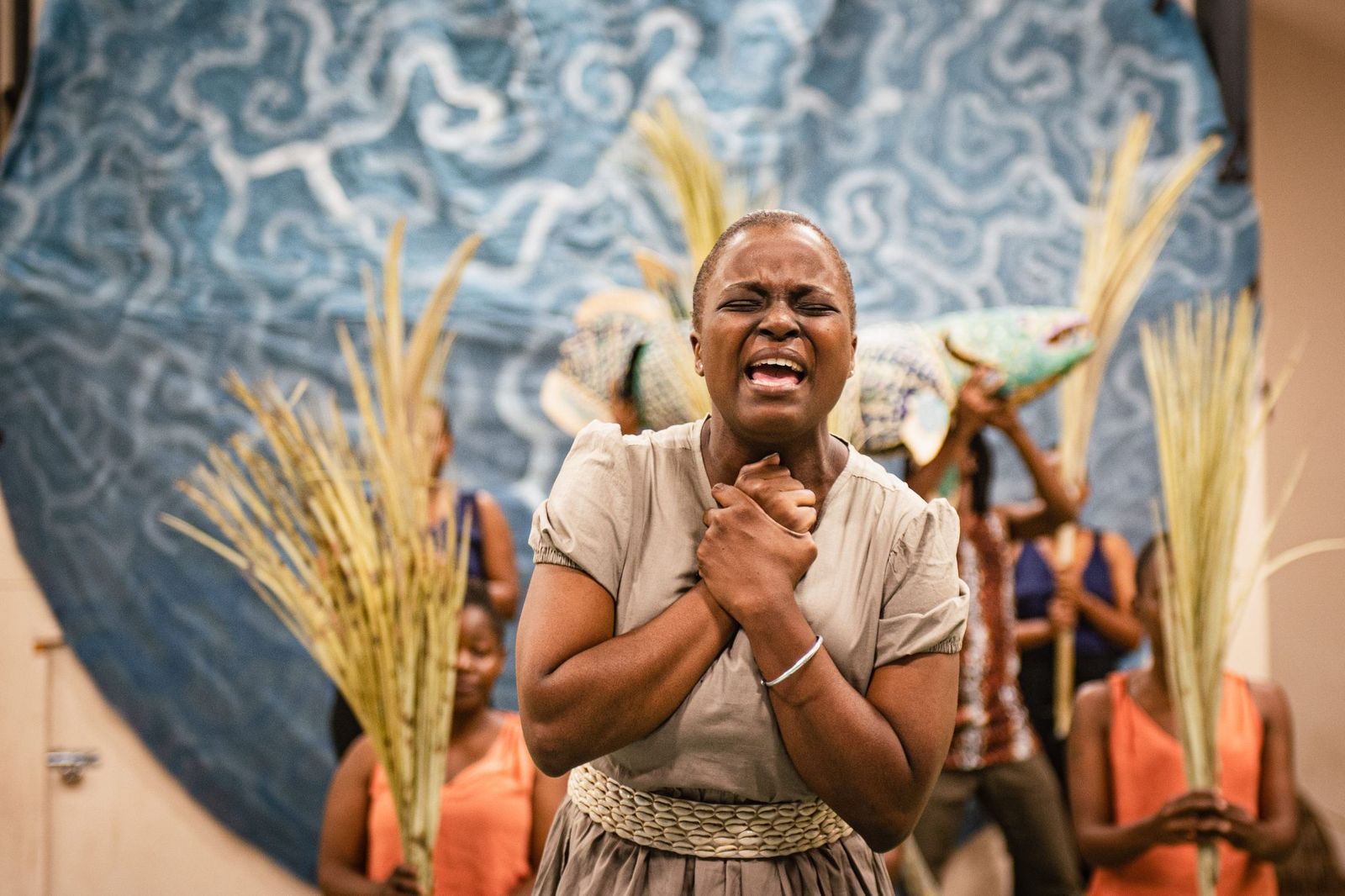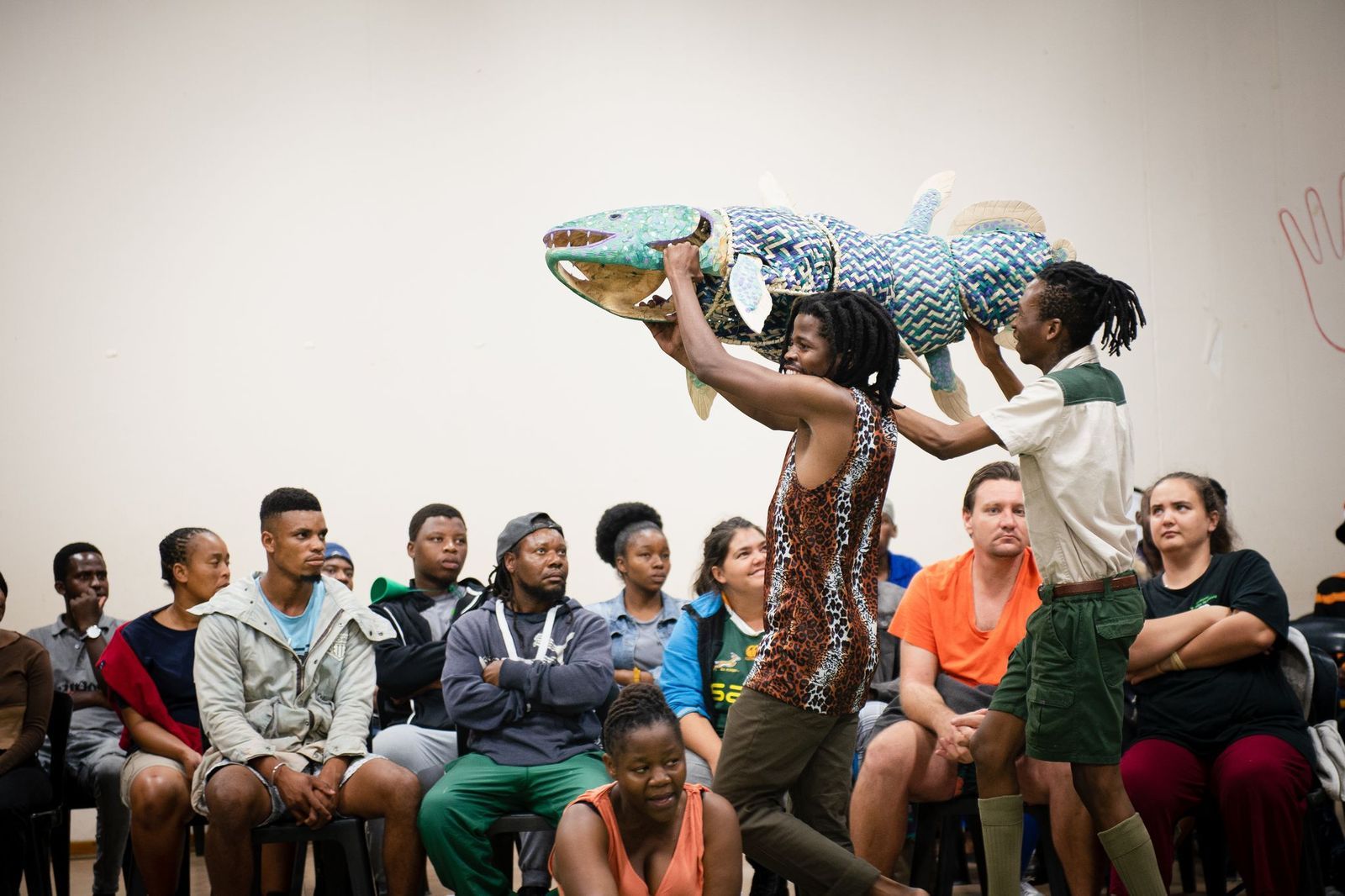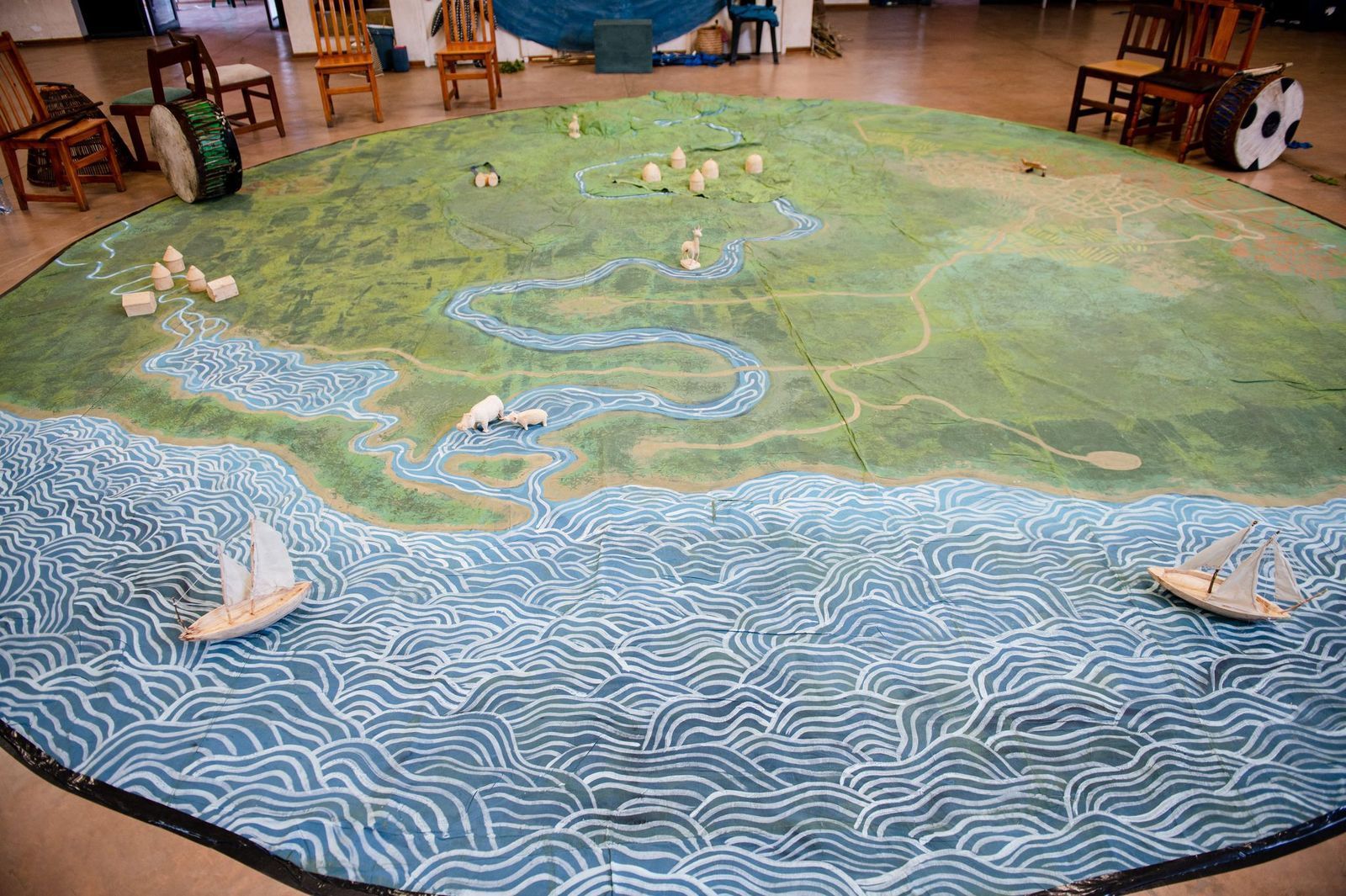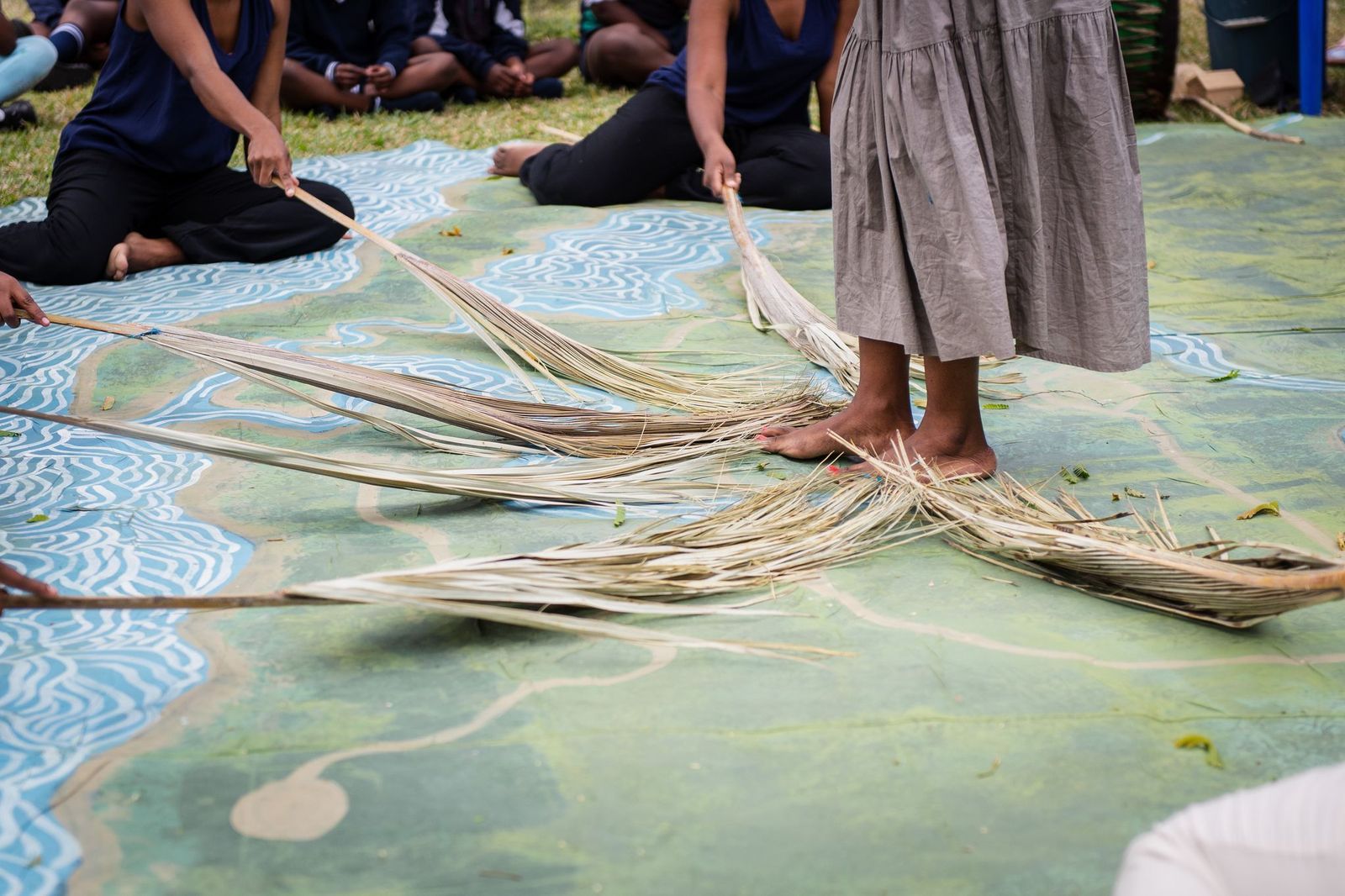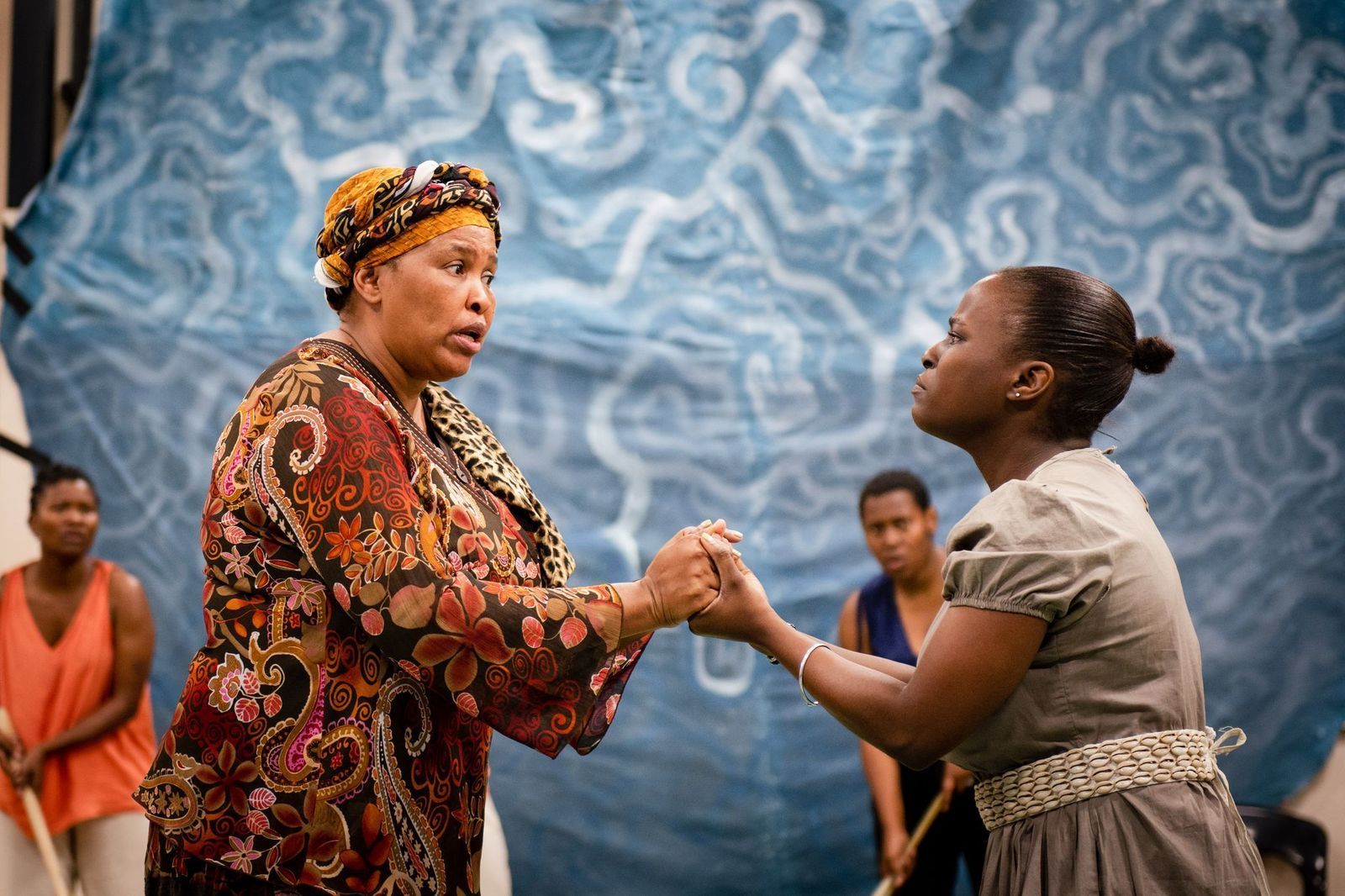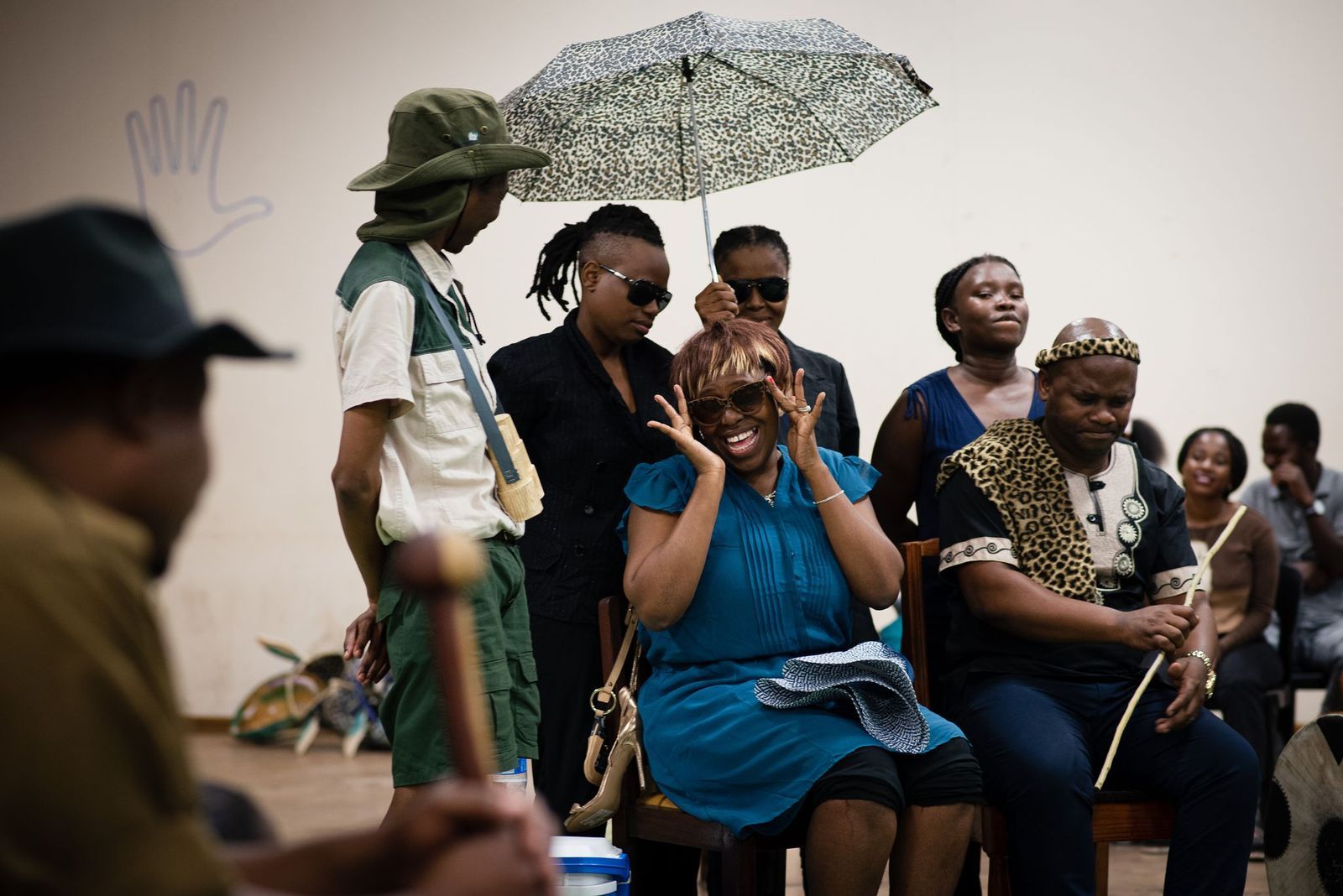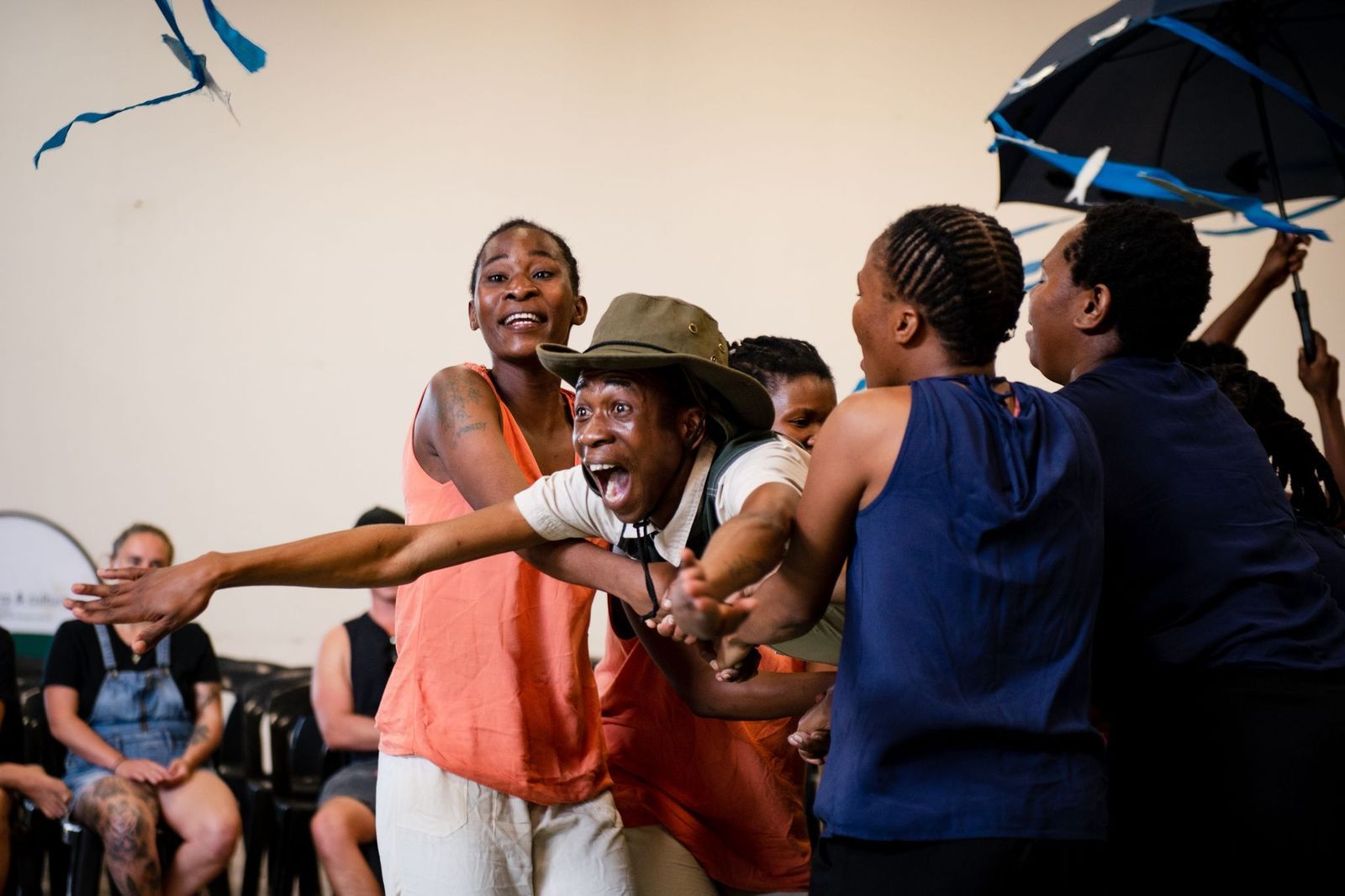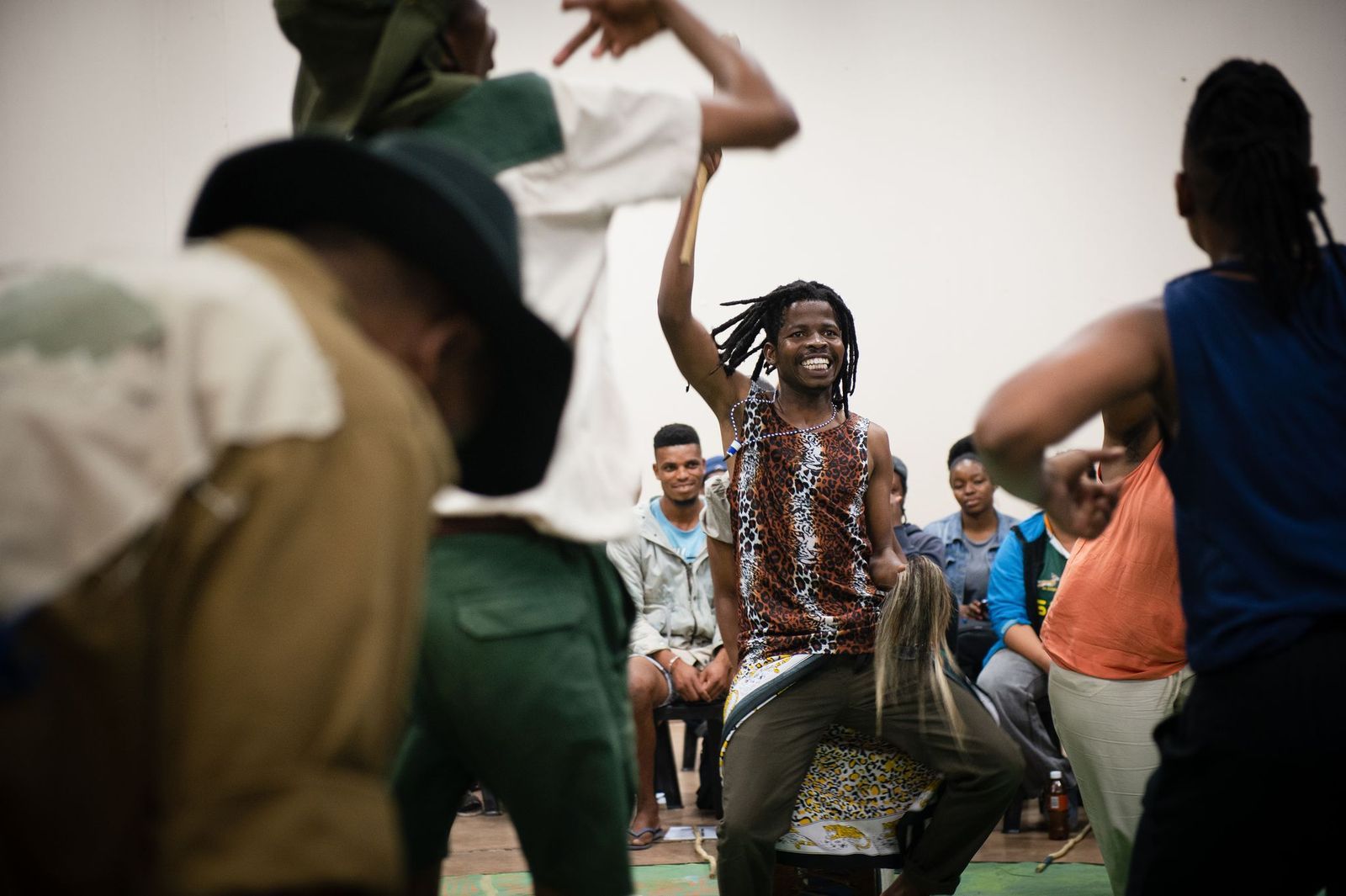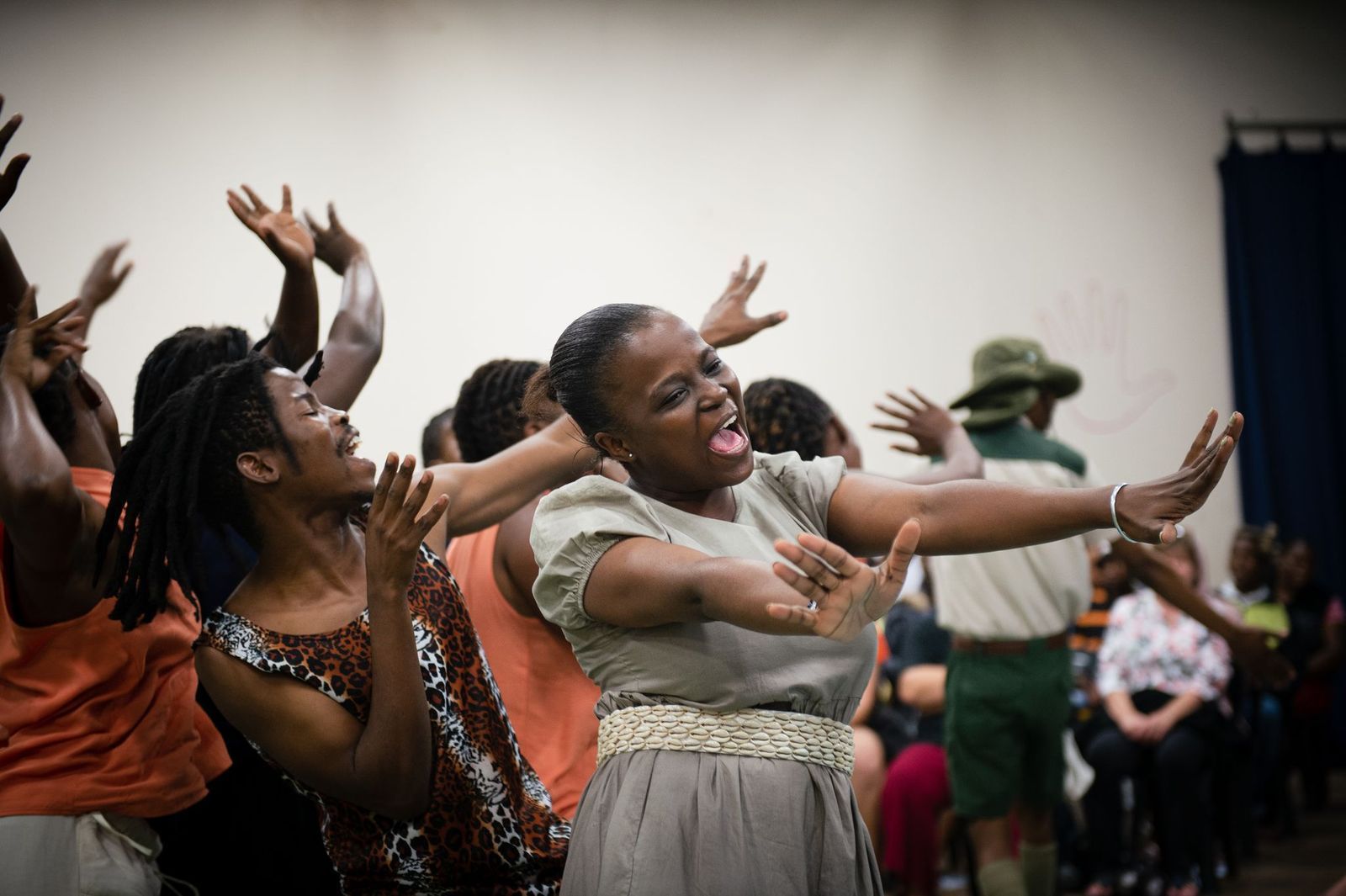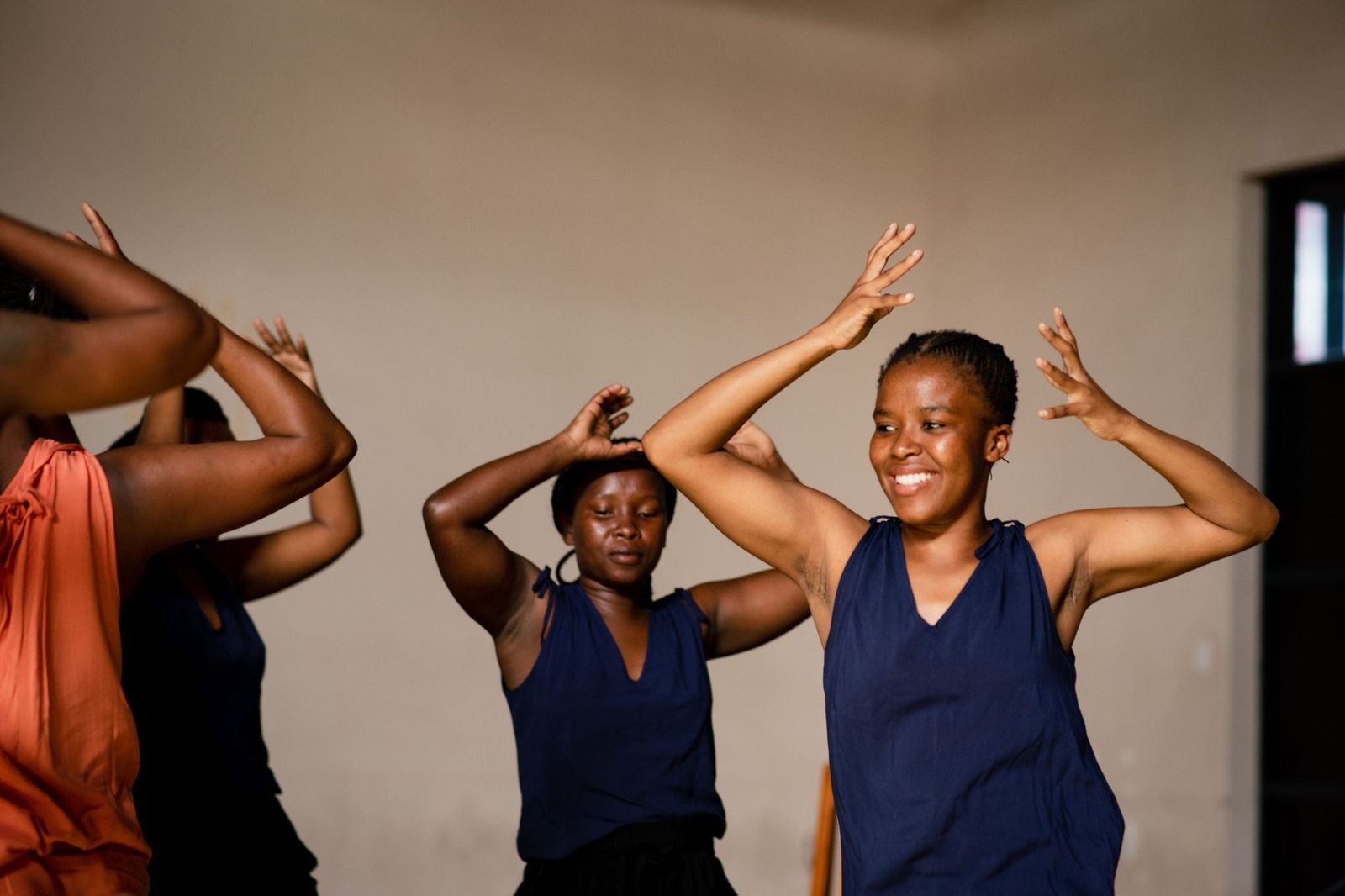New Paragraph
Umkhosi Wenala
Umkhosi Wenala is a theater-making/storytelling collaboration between Empatheatre and Mbazwana Creative Arts (MCA)in Zululand, Kwa-Zulu Natal that set out to create an innovative democratic decision-making space for youth in northern KZN, South Africa through the process of restorative public storytelling.
Over a period of 18 months the team listened to stories of elders, youth and everyone in between in Northern KZN to surface the rich and diverse histories of this region. With the legacies of apartheid many perspectives and histories have been excluded in decision making, and this play sets out to re-map these lost histories and memories through the leadership of KZN youth.
From out of the research and devising workshop process, a new musical theatre production was born titled Umkhosi Wenala (The Festival of Abundance). In 2022 the production played for a week of packed out performances in and around the Mbazwana area, with each performance followed by facilitated conversation and discussion with the audience, performers and creative team.
Umkhosi Wenala featured 13-young activist theatre-makers and storytellers in the region, and worked to mobilize their existing capacities and talents towards democratic governance and social-justice issues arising for them.
The two collaborating organizations Empatheatre and the Mbazwana Creative Arts (MCA)share a combined vision for forging inclusive creative processes and spaces where community artists/writers/ musicians and performers are located center-stage of their own stories and histories
The 60 minute musical (told in isiZulu and English) tells the story of two twins, a brother Nkosana and sister Makhosazana who inherit a kingdom after the disappearance of their mother, a queen, said to have drowned in the ocean. The two Nkosi’s, destined to rule together, are divided by circumstance and political forces beyond their control. After two decades of betrayal and conflict between their competing kingdoms, the situation further escalates with the arrival of a fence which cuts the communities off from their village and resources and resurfaces past tensions and new resentments. Umkhosi Wenala weaves together many relevant moments from the last century of Northern Zululand’s history and uses humor, pathos, satire, ritual and music to tell its story.
Northern Kwa-Zulu Natal has experienced generations of exclusion and environmental racism. During apartheid, communities were forcibly removed from their ancestral homes to either make way for mining, tourism and/or conservation. In the region around the IsiMangaliso National Park, with ongoing wilderness expansion, local Zulu and Tsonga people are still under threat of being dispossessed from the resting (and dwelling) place of their ancestors, their land, their livelihood practices, and the realms in which their ancestral stories weave into daily practices with land and ocean. The region has been declared a world heritage site, which while is an important demarcation for tourism and environmental protection, the cultural heritage(s) that exist in this region have not been fully articulated and or included in the region's plans and projects. Furthermore, with this demarcation as a heritage site, no industry or industrial development is allowed in the region, despite mining concessions that have been made nearby. This means rural youth growing up in this area have limited creative career options available to them, namely two - conservation or extractive capitalism.
Creative economies, and the room for creative economies between these polar fields is desperately needed. Furthermore, there is great potential in drawing from these creative and education economies as mediums for social justice and restoring the cultural heritages into the world heritage site - situated creative education as a powerful opportunity for capacity mobilization in the region.
The central instrument used to justify dispossession and environmental racism is the process of mapping. Land and sea is divided and allocated value through spatial planning and mapping by governments, NGOs, and Big Business around conservation, as well as by extractive industry, drawn mainly from biological sciences and economics. Yet the spiritual, social, and intersecting cultural knowledge(s) that are also impacted by these spatial plans and zonations are not considered.
This participative research and theatre-making/touring component of Umkhosi Wenala set out to create a new public dialogue and alternative approach to spatial planning of rural areas surrounding conservation and mining concessions. One in which traditional knowledge, contemporary social dynamics, and cultural phenomena are included in decision making processes.
Using an innovative participative research and theatre methodology, Empatheatre in collaboration with the Mbazwana Creative Arts Centre in Northern Zululand by Sodwana Bay - set out to create a new capacity strengthening and capacity mobilising project, that builds a new approach to negotiating and planning public space through public storytelling (theatre/dance/music).
Umkhosi Wenala has two concurrent practices, on the one side there is the creation of a powerful theatrical spectacle in which audience members participate in a ‘call and response’ storytelling process that re-maps (in vernacular isiZulu) the land, creating an “alternate archive” that re-tells the story of the region from local people’s perspective, and then explores, alongside the public, the potential of making a new map of the region.
On the other side of the project, there is an ongoing social-developing process, of building the capacity of 13 young artist/activist change drivers in the region, to become new champions for the communities surrounding the World Heritage Site
In 2021 and 2022 our facilitators led by Mpume Mthombeni worked closely with the 13 young activists/ performers from the Mbazwana region. Each participant collaborated with local knowledge holders and these storytellers participated in an ongoing call and response with them over the course of the devising of the production. From here the respondent/knowledge holders became the first demographic of the audiences. Participants from the region contributing to the research / rehearsal and performance process were around 30 to 50 people, while over the production's performance phase over 1500 Mbazwana residents, learners and stakeholders were able to attend the production for free.
Empatheatre has learned that when a wide range of participants contribute their stories and insights to a creative process...and these stories feature in the final production ...the participants are deeply invested in the final outcome and inevitably curious to see how their stories will feature or be portrayed. This incidentally ensures the production's political and cultural authenticity and ensures ethics of representation of cultural ideas and phenomena also remain accountable.
The production serves as a useful social instrument that can be used as an alternative public-consultation methodology and process - ensuring the troupe performing the production, and the facilitators facilitating the post-show discussion, can hire out their services and the play as a public consultation device for Environmental Impact Assessments (EIAs), Strategic Environmental Assessments, and Policy consultation processes - of which in any given month there are many coinciding processes such as these happening in the region.
Considering the play also acts as an archive and alternative map – and develops a social process of collaboratively reading and making decisions around the map, the project situates itself across many nexus points of interest and we believe allows for the existing talent and expertise of the Mbazwana participants to take their creative practice into new and unusual territories where they become professional experts on the socio-cultural histories of the region.
Scene 10 : The Story of “No-One-Knows-Where”
Nomali: (rolling her eyes and preaching) Everyone here is obsessed with this fence. The fence this…. the fence that! You like to blame all your problems on some wires and a gate but the real fences that stop you from succeeding in this life are the ones you have put up in your mind. You need to pull down these fences first…. you need to throw open the gates to progress…..you need to turn away from witchcraft (referring to the inyanga) and embrace the new world of opportunities the Lord God and my husband has created for you. Hallelujah…Amen!
Makhosozana: When we first met about this fence brother, it was to discuss how it needed to be built because our people had been complaining how the hippos were damaging our crops.
Nkosana: I remember that meeting. Our community was suffering and so I took the liberty to go to the good people at Emfihlakalweni and ask them to build a fence to protect you all from those hippos.
Makhosazana: You told us the fence would be a small one, (Shows up to her thigh) this high…. just high enough to keep the hippos out, and low enough to let us through.
Nkosana: And that is the one that I asked for. The one we discussed!
Makhosazana: Why then, when they finally put this fence up, was it taller than a giraffe with many wires that crackled with lightning?
Nyanga: Yah, that man putting up that fence, told us that if we touched those wires, we would wake up in Mozambique!
Makhosazana: Instead of protecting our crops, this fence now ran all along our coastline and right down to the edge of the sea ,cutting us all off from the lakes, forests and hills. This fence was put there to protect the hippos while keeping the rest of us out! Fences everywhere!
The person playing the Magistrate moves around the cast on the stage with a long chain, wrapping the chain around each of their bodies and creating the fence. As the magistrate moves from point to point, more and more people get chained and bound. This image continues slowly over the below dialogue until everyone is tied up in the mess.
Zodwa: Fences to stop us from arriving and leaving…
Nyanga: from praying and meeting…
Mother: Farming and grieving.
Makhosazana: No one had informed us beforehand about this thing called Emfihlakalweni. When we first heard this name we thought it was an animal or something. A big creature with many eyes, weapons and legs …..with a hunger for our land.
Umkhulu: Even when we did not elect this creature as our leader or invite it here in the first place.
Makhosazana: We only understood what was happening when the Magistrate arrived here to tell us that we would need to leave our land and move to the other side of their fence.
Zodwa: But this didn't happen on the side of the river that Nkosana and Nomali and their followers lived on.
Makhosazana: It was only the side of the river that fell under my leadership that was declared the Emfihlakalweni world heritage site and do you know why? Because there was no nature left on your side, Nkosana . (To Nkosana) You had already sold everything ...the lakes and forests were gone. All you will find on that side are petrol stations and plantations ....churches and bottle stores.
Zodwa: Concrete and tar.
Umkhulu: No one wants to take a holiday there!
Mother: On our side of the river we had lived with and cared for the natural world, understanding it was our treasure.
Ndlao: A treasure those rich men sitting in the offices of Emfihlakalweni quickly put a price on!
Thuli: When we asked them what this World heritage site meant, we were told that it was a thing that would bring many jobs here and that we must co-operate and be grateful.
Makhosazana: When we said we did not want this thing here, they told us the decision had been made ... the people from the tribal authority had already signed the documents. (beat) Why then brother had I not seen a single form?
Nkosana: Sometimes a leader knows what’s best for his people. They may not be able to see its purpose at the time…but in the long term…….
Makhosazana: (Cutting him off) And you think this fence was best?
Mother: You went behind our backs Nkosi! You never consulted us!
Makhosazana: I would never be so foolish to sign away my peoples futures Nkosana.. To sentence them all to starve at the stroke of a pen? No…No..No. At that same meeting with the magistrate, one of us asked when all of this would all be happening? The white man opened his book and pointed to the date. There was no consultation…… only a declaration... Everything had been decided for us.
Mother: When we asked where these Emfihlakalweni people were moving us to, that
magistrate pointed to a patch on his map saying:
Magistrate: (in English) See ...along this path and over this hill…just over there…..you will all be moving to a place I hereby name…the district of um...well… Nooneknowswhere.
All: (confused) Nooneknows what?
Magistrate: (Correcting them) Nooneknowswhere?
All: (Still confused) What?
Magistrate: (firmly) Where?
Makhosazana: They arrived with a list of our names, and told us to load our belongings on the backs of their trucks. There wasn't time to even herd our cattle out of that gate.
Ndalo: They were sending us to Nooneknowswhere whether we liked it or not.
Umkhulu: Next they closed down the campsite we ran as a community down by the sea. Saying it was now illegal to operate tourism ventures inside their park. But the Infinity Hotel on the other side of the river went unchallenged!
Nyanga: They stopped us from collecting muti from the rockpools and firewood from our forests. After that fence was put up, I tried to go to Phala at the graves of our ancestors…the graves of your parents Nkhosozana and Nkosana…but I was told I needed a permit from the head office which would take 14 days to come. When this permit arrived and I went down to the sea to do the rituals there, their guards followed me, keeping watch with their guns. When I asked why these men must come with me, they told me they were there to keep me safe from the wild animals…. But how could this be so eh?…..When I had lived peacefully amongst these creatures my whole life. When I tried to do my rituals down by the sea, I was told I was no longer allowed to slaughter animals, because the blood brings the sharks which would eat the tourists who were paying lots of money to come and snorkel there!
Makhosazana: They demolished our homes and drove us far away from the fertile swamp lands on the coast to a place where nothing could grow.
Mother: We were forced to abandon our Amadobo- the wetland- communal gardens our people had relied on for centuries. They moved us to land that not even a herd boy would use as his toilet/ to shit on. The earth out there was beach sand and there were no rivers….. no drinking water….
Umkhulu: We were told we would now have to drink water where the cows drink .
The chorus sings a dejected/lament version of the tourism song from the beginning of the play.
Chorus: Ezulweni…Ezulweni
Take it easy…take it slow
A place of magic and miracles
Above the waves and below
Makhosazana: When we tried to plant crops here…. they withered in the sun. Whenever we tried to go to lakes or the sea to fish, we were called poachers and criminals. Whenever we protested and tried to reclaim our land…. we were labeled “illegal invaders” by the politicians and newspapers.
Zodwa: Each time we summoned the courage to speak up ….we were answered with sticks.
Makhosazana: Then came the tourists from all over the world, tourists from America and England and Germany…. we were told to smile and welcome them…. to do our Zulu dance at their dinner parties for fifty rands.
Chorus: Ezulwini…Ezulwini
Don’t look further…
Don’t think twice
Makhosazana: (to Mvelo) You guided them around our villages and let them take pictures of us for free. (Mocking Mvelo ) Don't say cheese we were told…. just say….. Emfihlakalweni!
Chorus: Ezulweni is calling
Calling you to paradise.
Ezulweni is calling…
Saying that out here
Things are very nice…nice…nice.
Makhosazana: We smiled for them…. but inside ...inside my brother we were crying.
Song ends
The production features the talents of Mpume Mthombeni, Sphamandla Mzombe, Dumasani Ngubane, Njabulo Zikhali , Mbali Ntuli, Siphamandla Vusi Mafuleka, Noxolo Thandeka Mlungwana, Zimpendulo Petunia Mthembu, Nokubonga Zikhali, Nolwazi Zulu, Nelisiwe Mbuyazi and Nomthandazo Nxumalo.
Umkhosi Wenala was devised and co-created by the award-winning Empatheatre team of Mpume Mthombeni, Dylan McGarry and Neil Coppen alongside Mbazwana Creative Arts members Sphamandla Mzombe, Dumasani Ngubane, Njabulo Zikhali , Mbali Ntuli, Siphamandla Vusi Mafuleka, Noxolo Thandeka Mlungwana, Zimpendulo Petunia Mthembu, Nokubonga Zikhali, Nolwazi Zulu, Nelisiwe Mbuyazi and Nomthandazo Nxumalo.
Umkhosi Wenala has been made possible through generous support from the Bertha Foundation (Bertha Artivism Award), NAC (National Arts Council) , The One Ocean HUB and ACEP DEEP CONNECTIONS project.
With special thanks to Dr Philile Mbatha for sharing her research and knowledge so generously with us, Adrian Kawaley-Lathan and the incredible team at the Bertha Foundation, Wendy and Neville Aliyff for all their love and support. Jerry Mngomezulu and Jen Whittingham for being such integral friends and advisors on the project. Casey Pratt, Jackie Bruniquel, Karen Logan and Marcello
Bertha Documentary:
